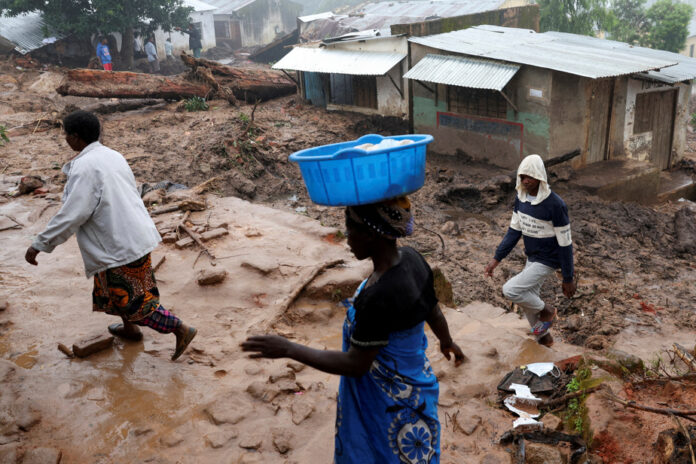(Brazzaville) The devastation caused by Cyclone Freddy in southern Africa exposes the population to “major health risks” in the most affected countries, warned Thursday the Africa office of the World Health Organization (WHO).
“More than 300 health facilities have been destroyed or flooded in Madagascar, Malawi and Mozambique, depriving communities of proper access to health services,” WHO-Africa said in a statement.
Risks include “increased spread of cholera, malaria, vaccine-preventable diseases, COVID-19 and malnutrition,” the text adds.
In Malawi and Mozambique, the cyclone “spread in a context already marked by cholera epidemics”, recalls WHO-Africa.
In Mozambique, the number of new cases has more than doubled in the past week (from 1023 to 2374). Malawi, facing the worst cholera epidemic in its history, on the other hand “continued to register a decline in the number of new cases (1424 against 1956). But the damage caused by the cyclone “may hamper this progress, fears the WHO.
“Our priority is to ensure that affected communities and families receive health assistance to meet their immediate needs and limit the risk of disease spread,” WHO Regional Director Dr Matshidiso Moeti said in the statement. for Africa.
“Reinforced and concerted humanitarian assistance is essential,” insists the WHO.
On track to be ranked the longest cyclone on record, Freddy first hit Madagascar and Mozambique in late February before returning to the Indian Ocean. It had regained power from the warm waters and turned back, heading back to the mainland. When he returned, he had hit landlocked Malawi the hardest.
It killed around 500 people in southern Malawi, the epicenter of the disaster, and more than 650 in total in southern Africa, according to data collected by UN agencies.


















